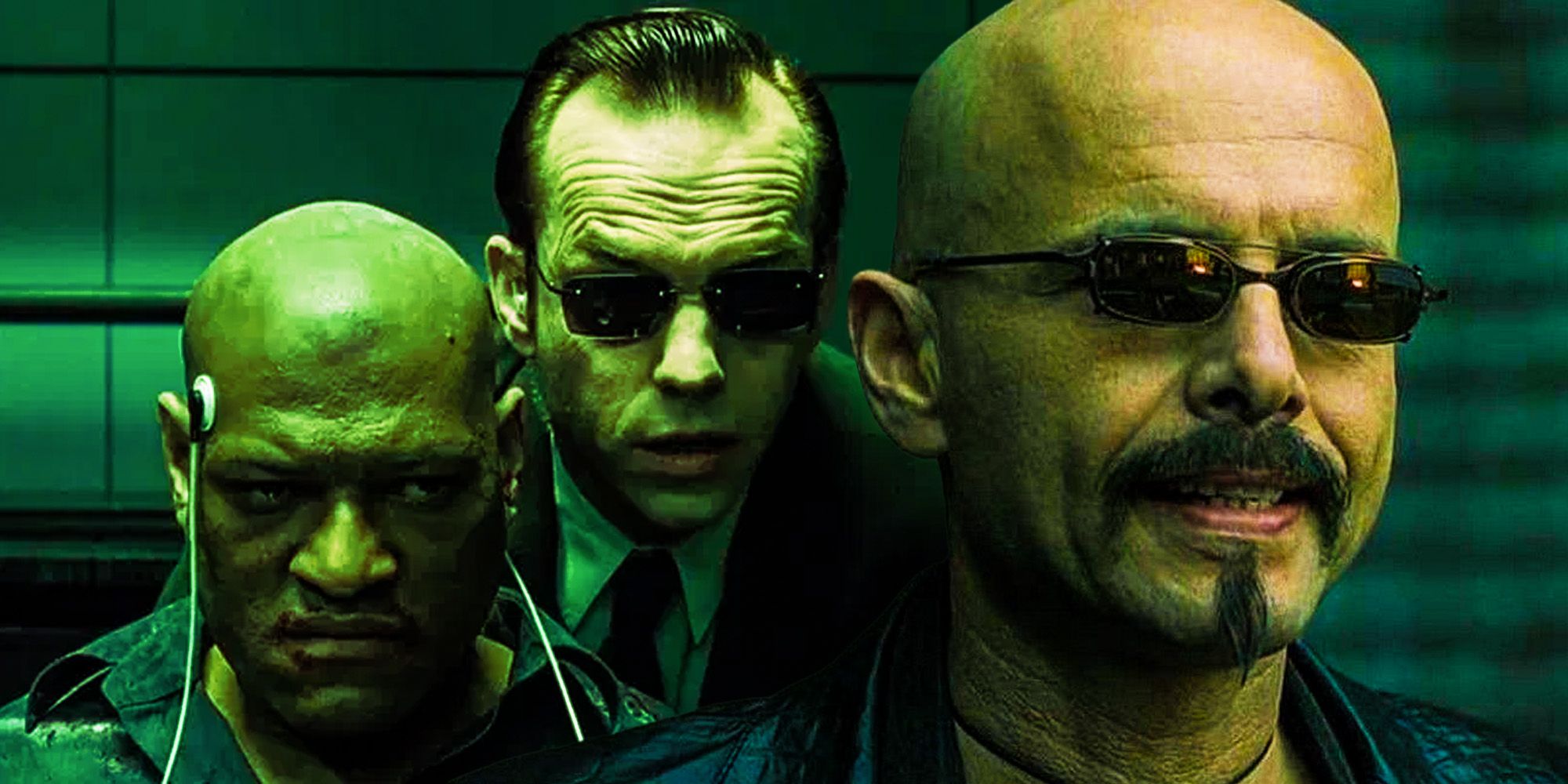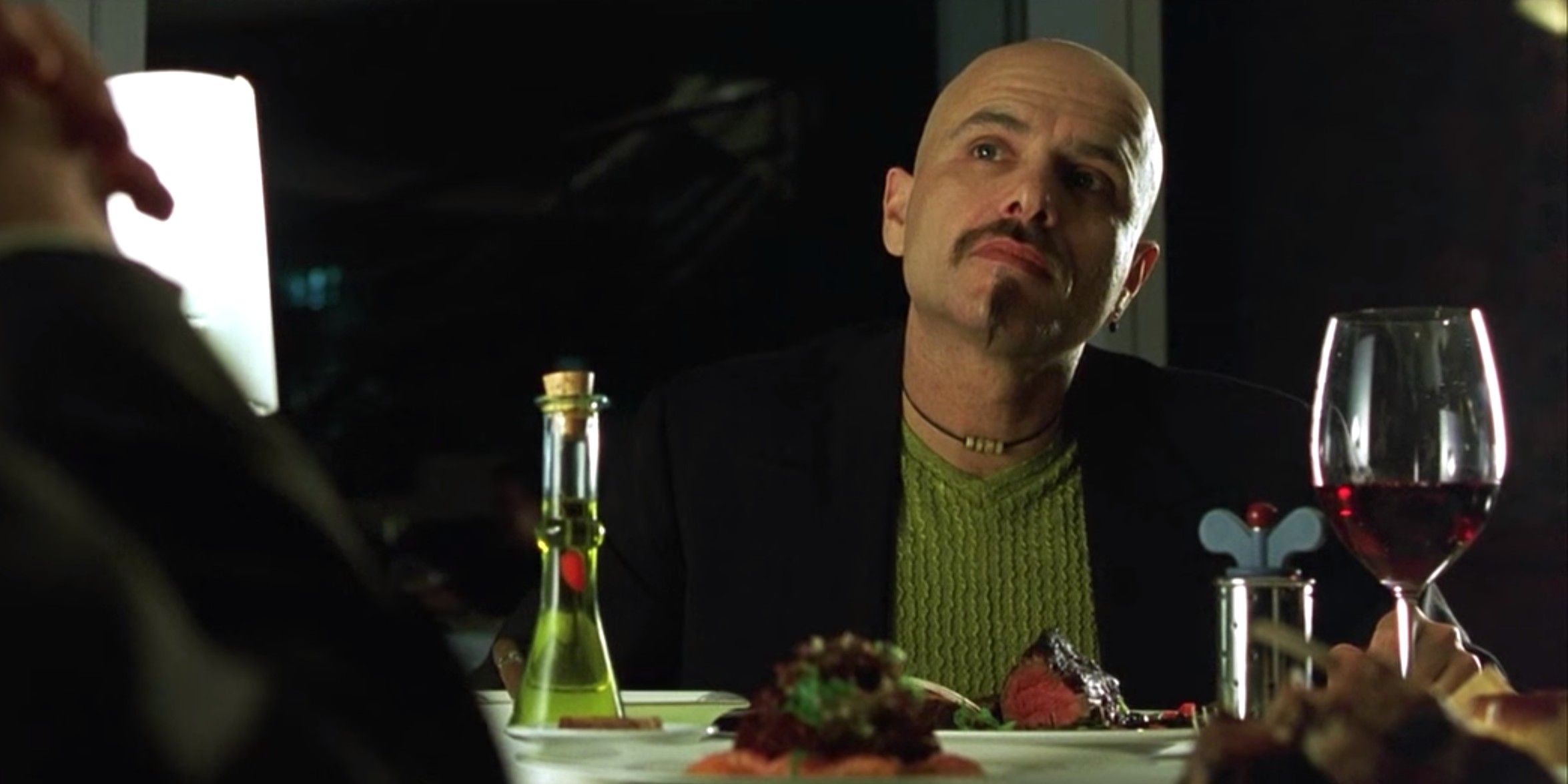The Matrix takes a dramatic turn when Nebuchadnezzar crew member Cypher betrays Morpheus, turning him over to the Agents. At first glance, the reasons behind Cypher's decision seem obvious, but they turn out to have multiple layers. Cypher explains some of his reasoning to Agent Smith when he makes the deal to turn traitor, but the brief scene doesn't go into depth.
In his deal with Agent Smith, Cypher agrees to turn over Morpheus — and by extension, the access codes to the Zion mainframe — in exchange for reinsertion into the Matrix. After nine years of freedom from the Machines, Cypher wants to be turned back into a human battery. He makes Agent Smith promise that the Machines will again submerge him in a simulation of life with no memory of the real world.
Cypher's number one reason for wanting to return is his dissatisfaction with reality. After being freed from the Matrix by Morpheus, Cypher became disillusioned with the real world. In the 22nd century, Cypher is tired, hungry and enmeshed in a seemingly unwinnable war against the Machines. In the Matrix, Cypher can have anything he wants — juicy steak, expensive wine, a rare cigar. Even though it's not real, the Matrix offers creature comforts and peace of mind. As Cypher tells Agent Smith, "Ignorance is bliss."
Cypher's desire for a rich life is one of the major factors in his betrayal of Morpheus. Outside of the Matrix, Cypher lives in a dystopian world in which humans struggle just to survive. In the Matrix, Cypher is seen eating a "juicy and delicious" steak. His meal is contrasted with the slimy slop the crew of Nebuchadnezzar has to eat, seen in the following scene. Cypher tells Agent Smith that when he goes back into the Matrix, he wants to be wealthy and, "Someone important. Like an actor."
Cypher's decision is also driven by his disbelief in Morpheus. As he talks to Neo in the prior scene, he expresses doubt in the powers of The One, telling him to run if he ever sees an agent. Cypher also says he wishes he'd never taken the red pill, seeming to blame Morpheus for his current situation. After years of fighting against a powerful and innumerable enemy, it must be difficult for anyone to believe humans can achieve a meaningful victory. Cypher seems to think humanity's loss to the Machines is a foregone conclusion. He harbors resentment against Morpheus for forcing him to join a seemingly hopeless fight.
In The Matrix, Cypher has a philosophy that goes beyond the material conveniences of the Matrix. By re-submerging himself in a false reality in The Matrix, Cypher doesn't have to face the difficult problems or moral quandaries of the real world. Cypher has the illusion of freedom as well as the security of knowing nothing is ever out of control. Although he will seemingly be able to make his own choices, he will never have to face true consequences.


